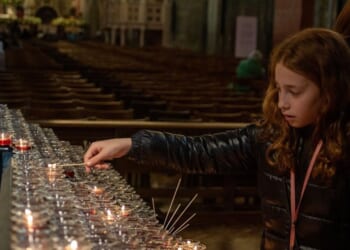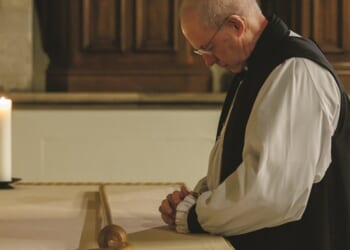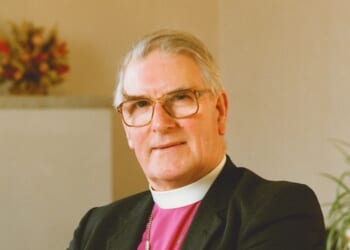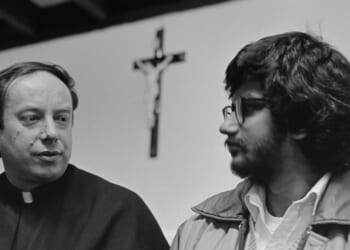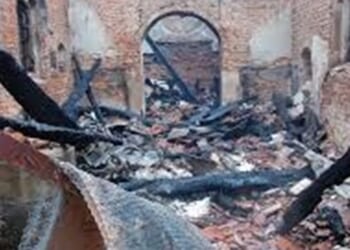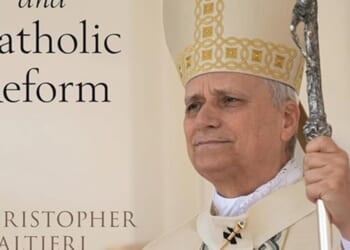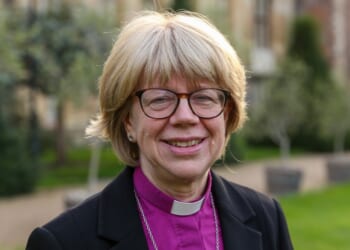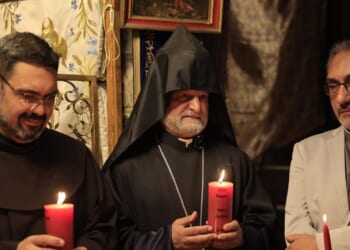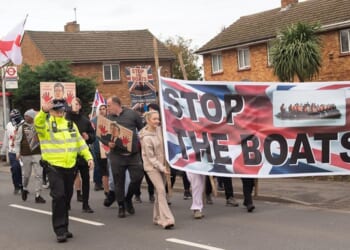Confusion over climate theology and panentheism
From Professor Richard Bauckham
Madam, — The survey on which the report Religion, Theology and Climate Change (News, 5 September; Letters, 12 and 19 September) was based asked people whether they agreed with the statement “God is embodied in the world and universe, rather than separate from it.” This is so badly expressed that I do not know how to agree or disagree.
The terms “embodied” and “separate” are both inappropriate. If “separate” implies a spatial gap or barrier between God and creation, then, of course, Christian theology has never supposed that. Rather, God is utterly distinct from creation and utterly different from it. But this is precisely how God is able to be present in creation in ways in which no creature can be. God is both utterly distinct (transcendence) and intimately present (immanence). These are corollaries, not alternatives.
What does “embodied” mean? If it means that the world is God’s body, similarly to the way in which my body is mine (as a few theologians have proposed), then God is confined to and dependent on the world. This is a grossly impoverished version of the Christian understanding of God. Any view that limits God to the world or confuses God with creation limits the manifold different ways in which God can be present in or to his creation. These include the way in which God sustains the whole universe in being, and the way in which God cherishes every creature in the manner appropriate to each. They include personal encounter, in which God meets and addresses us.
They also include incarnation. In Jesus Christ, God is not only present in, with, or to creation, but actually as the one human being Jesus. This is a unique form of presence, which permits us to say, “Jesus is God,” something that cannot be said of any other creature. This is essential to the centrality of Jesus in Christian faith. Incarnation must be distinguished from the general immanence of God in the world and from the special presence of the Holy Spirit, through Christ, in the Church, Christ’s body.
Once we have a firm grasp of the fundamental relationships between God, Christ, and creation, and are also alert to the many different forms of God’s presence in the world, then certainly we must boldly extend our understanding of salvation beyond the restriction to humanity which has characterised much (but by no means all) Christian thinking in the past. God’s purpose is for the restoration and perfection of the whole creation. We humans are inextricably part of the whole creation, and our future in Christ is to participate in the renewal of the whole creation.
The destruction of nature is evil because God made it and loves it and has a future for it. It is not divine, but it is sacred (another key distinction). It is sacred because it belongs to God, not to us. As such, it is also Christ-centred. The whole of God’s purpose for the whole creation is focused on Christ (as the great Christ hymn in Colossians 1.15-20 celebrates).
It is encouraging to know that this is recognised among many respondents to the survey. But both the questions asked and the views of some respondents suggest to me that a much richer and more nuanced understanding of God’s relation to the world is needed. We do not magnify creation by diminishing its Creator.
RICHARD BAUCKHAM
11 Archway Court
Cambridge CB3 9LW
From the Revd Mike Plunkett
Madam, — The climate theology described in your report is complicated and unhelpful. The Trinity is all we need. Recall an amazing picture of the universe and relate to God the Father, the uncreated Creator, who is aware of this minute but beautiful little earth and the creatures that are an end product of evolution; aware and seeing the suffering, wars, and also, of course, the person who is praying.
Then, there is the Second Person: the incarnation through whom we have a total revelation of what we need to do and be. Finally, we have the Holy Spirit, who is God within ourselves and within the fabric of the universe.
MIKE PLUNKETT
1 The Ridge, Bishops Castle
Shropshire SY9 5AB
From Charlie Watkins
Madam, — Your report on the Religion, Theology and Climate Change report notes widespread agreement with panentheism. Anticipating its detractors, I think it is important to recognise that panentheism in various forms has been a part of Christian belief from its earliest days: just consider St Paul’s claim that “In him we live and move and have our being” (Acts 17.28).
Panentheism is not pantheism — a straightforward identity of the world with God — but, rather, the belief that the world cannot be without God. It is no wonder that it is environmentally conscious Christians — those most attentive to the beauty of the world — who have come to recognise this.
CHARLIE WATKINS
Flat 1 Thelwall House
Herbert Close
Oxford OX4 2AY
From Judith Russenberger
Madam, — Further to Christian Climate Action’s publication of a vision document, Stop Crucifying Creation, what would it look like if the Church took up the called-for prophetic role?
Would the General Synod march from Church House to the Houses of Parliament demanding action on climate change? and demanding full-hearted support for the Climate and Nature Bill?
Would we see rapid demands by the Synod that the Church Commissioners be authorised to rewild 30 per cent of the Church’s farmland? Would we see land set aside for the planting of Communion Forests here in the UK?
Would there be diocesan days of prayer calling for an end to industrial farming practices — and for fair prices for farmers — or a just transition for workers in the North Sea oil industry? Would we see cathedrals flying banners reading “Stop Rosebank” or “Refugees Welcome”?
Would church leaders gather outside the Department for the Environment calling for an end to the bottom trawling of our seas? Would we see a mass action in which all church organisations shifted to an ethical bank?
The possibilities are endless.
JUDITH RUSSENBERGER
84 Temple Sheen Road
London SW14 7RR
Survivor’s experience in Portsmouth diocese
From Mr Martyn Davis
Madam, — I read with interest and some disbelief your report on the diocese of Portsmouth and its Bishop, the Rt Revd Jonathan Frost, and safeguarding (News, 26 September).
In 2023, I contacted the Bishop of Portsmouth. During that conversation, I disclosed to him abuse that I lived through when I was a teenager. He was less than understanding.
In the time since we met, not once have I been checked on, or given any pastoral support. The recent mess of the abuser that led to the Archbishop of Canterbury’s resignation brought back all the issues and events that happened to me. The Church has no idea what happens during abuse, no idea about the lifelong scars and pain. I have relived everything that I thought I had gone through because of all the recent publicity; plus the priest David Tudor and the comments about his five-star-priest status.
None of you understands what those comments do to those who have become survivors; and few care.
I wrote to the Bishop three times after our meeting and received no response. Finally, I received a response from the Diocesan Secretary and was informed that “matters of this nature are typically handled administratively through the Diocesan Office.”
After I complained about that response, I was told that they were referring to the complaints procedure, which was not mentioned in the letter.
You report the Bishop as saying: “If we don’t have our safeguarding house in order, then we should simply close the doors.”
Well, maybe he should consider that and not promote misunderstanding about the care and understanding that he offers to survivors. The whole story came across as hypocrisy and face-saving rather than admitting failings.
Finally, I complained to the diocese about the Bishop in this matter on 16 June and yet again received no response.
MARTYN DAVIS
Address supplied
Research needed on C of E obstacles to vocations
From Mr Oliver Iliffe
Madam, — We can all be deeply thankful for Canon Roger Knight (Letters, 26 September) and those like him, who have devoted their entire working lives to full-time Christian ministry. The latest ministry statistics, released in June, reveal that of nearly 6700 stipendiary clergy in the Church of England today, only 99 are under the age of 30 (and only one under 25). Moreover, they show that 47.5 per cent are over 55, while many more clergy are being lost through resignations than retirements.
Urgent action and funding is needed to recruit more clergy. May I suggest that the Church needs to begin with a survey of young Christians in faith-based work (including work in independent churches, alternative denominations, Christian charities, or businesses consciously serving Christians) to discover what puts them off seeking ordination in the Church of England.
The answers would help in formulating a new “lifetime covenant” by the Church for such people, assuring them on conscience, tenure, pay, and conditions. We need to see as much seriousness of commitment to them and their future as Canon Knight and his contemporaries made to the Church in their youth.
OLIVER ILIFFE
Address supplied (Ogbourne St George, Wiltshire)
Unite the Kingdom march and Christian symbols
Madam, — I feel compelled to respond to your various articles about the Unite the Kingdom march in London. My son encountered the march on his way through London and commented on how ordered it was and the diversity of participants. The few incidents of violence are lamentable, but it was a tiny fraction of the whole: hardly the “far-Right” fracas so readily seized upon by your contributors.
Much is made by the Church’s liberal consensus of the Christian injunction to welcome the stranger; the Levitical Law and Christ’s teaching are clear. Neither the Law nor Christ’s parables, however, offer an unlimited provision. Even a parable such as that of the friend at midnight, ending as it does with “the whole meal if necessary”, implies a limit: the limit of the meal.
Far from hijacking Christian symbols, perhaps the march participants simply sought to reclaim a genuinely Christian perspective — that of mutual responsibilities over unlimited rights: genuine “old-school” liberalism?
But your contributors saw no need to engage, unlike the late Charlie Kirk. The failure of the liberal consensus isn’t simply to appreciate that there may be an alternative view; their failure is not accepting that hard decisions about rights have to be made. Cohesive societies are not built on rights: they are built on mutual responsibilities within the rule of law.
NAME AND ADDRESS SUPPLIED
From Mr Peter Dillistone
Madam, — I applaud the bishops and other Christian leaders for the statement reported on your front page (News, 26 September). I just wonder why they did not include President Putin, Mr Netanyahu, President Trump, and the rest of the world leaders who do exactly the same as the racist and far-Right protesters criticised. Many of the attitudes around the world are fuel to the protests in this country, and some of these “gentlemen” actually use attendance at church services to forward their aims.
PETER DILLISTONE
4 Ullswater Avenue
Stourport on Severn
DY13 8QP
St Edmundsbury: the example of a friendship
From the Revd Cecil Heatley
Madam, — When I saw the picture of Lord Tebbit (Faith, 19 September), I was tempted not to read the article. But I am glad I did. Many clergy find it difficult to deal with criticism. The Dean of St Edmundsbury, the Very Revd Joe Hawes, has set an example of how to exercise the ministry of reconciliation to which we are called. I am grateful to him.
CECIL HEATLEY
Flat 1 Bromley and Sheppards Colleges
London BR1 1PE
The Editor reserves the right to edit letters


